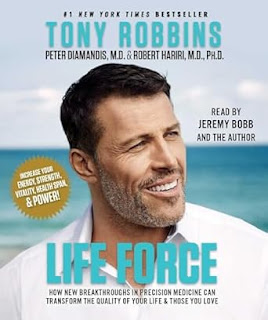A Philosophical Reckoning with Conflict, the Pahalgam issue.
The Echoes of Pahalgam
The serene valleys of Pahalgam, now stained with sorrow, have once again thrown the complex tapestry of India-Pakistan relations into sharp relief. The brutal attack, a stark reminder of the ever-present specter of terrorism, compels us to not only react but to reflect – to delve into the philosophical underpinnings of conflict and the choices that lie before us. This is not merely a geopolitical crisis; it is a human one, demanding a response that transcends immediate rage and embraces a deeper understanding of consequence and ethical action.
Five Seeds of Discord: A Conflict Etched in Time
-
The Scar of Separation: The very genesis of India and Pakistan lies in a painful partition, a historical trauma whose phantom pains continue to fuel suspicion and animosity. Each act of violence becomes a fresh tearing of this old wound, a reminder of shared history fractured by divergent identities. Can we ever truly heal from a division born of both aspiration and agony?
-
The Shadow of the Other: Conflict thrives in the space between understanding. We often construct narratives of the "other" – simplified, demonized versions that strip away shared humanity. The Pahalgam attack becomes another brushstroke in this dark portrait, obscuring the individual tragedies and perpetuating a cycle of fear and distrust. Is our perception of the "enemy" a reflection of reality?
-
The Siren Call of Retribution: In the face of such senseless loss, the primal urge for immediate retribution is powerful. Justice, however, demands more than just a visceral reaction. It requires discernment, evidence, and a commitment to principles that elevate us beyond the cycle of violence. Are we driven by a righteous pursuit of accountability or the seductive allure of vengeance?
-
The Fragility of Peace: Moments of relative calm between India and Pakistan often feel like a precarious truce, a fragile equilibrium constantly threatened by the winds of extremism. The Pahalgam attack is a stark testament to this fragility, exposing the deep-seated insecurities and the ease with which peace can be shattered. Is peace merely the absence of war, or does it require a more profound and sustained effort of empathy and reconciliation?
-
The Weight of History, the Burden of Future: Generations on both sides have inherited a legacy of conflict. Each new crisis adds another layer to this heavy burden, shaping perceptions and limiting possibilities for genuine connection. How do we break free from the shackles of the past and forge a future where shared humanity triumphs over inherited hostility?
Five Paths to Transcend Violence: Actions Woven with Wisdom
-
The Art of Persuasion: Diplomacy, often dismissed as slow and ineffective in the face of outrage, remains a potent tool. Engaging with the global community, presenting a clear and compelling case built on irrefutable evidence, can create a moral and political pressure that even the most recalcitrant actors find difficult to ignore. True strength lies not just in arms, but in the power of reasoned argument and ethical suasion.
-
The Currency of Connection: While acts of violence seek to divide, fostering people-to-people connections – through cultural exchange, shared economic initiatives, and open dialogue – can slowly erode the walls of mistrust. Building bridges of empathy, one interaction at a time, is a long-term investment in a shared future, reminding us of the human faces behind the political facades.
-
The Power of Truth and Accountability: Justice, in its truest form, is not about retaliation but about establishing truth and holding perpetrators accountable through legitimate means. Investing in thorough investigations, sharing credible evidence with international bodies, and demanding transparent action can be a powerful non-violent weapon against state-sponsored terrorism.
-
The Strength of Resilience: Responding to violence with further violence often plays into the hands of those who seek chaos and division. Cultivating national resilience, maintaining social harmony, and refusing to be defined by acts of terror demonstrates a profound strength that undermines the very goals of extremism.
-
The Long Game of Transformation: True and lasting peace requires a fundamental shift in mindset. Investing in education, promoting critical thinking, and fostering a culture of empathy on both sides of the border are essential for dismantling the ideologies that fuel conflict. This is not a swift battle, but a patient and persistent journey towards a shared understanding of our interconnectedness.
The Prudence of Pause: Why Evidence Must Precede the Sword
To rush headlong into war, fueled by righteous anger but lacking the irrefutable weight of evidence, is to risk a Pyrrhic victory – a triumph that costs us our moral high ground and the crucial support of the international community. In the absence of a clear, demonstrable link, military action risks being perceived as an act of aggression, alienating potential allies and emboldening those who seek to paint India as the aggressor.
The philosophical wisdom here lies in understanding the power of truth. When our actions are grounded in verifiable facts, presented transparently to the world, our cause gains legitimacy and moral authority. International support is not merely a matter of political expediency; it is a reflection of a shared commitment to justice and international law. To act prematurely is to sacrifice this crucial foundation, potentially plunging the region into a conflict with uncertain outcomes and limited global backing.
The path of prudence, therefore, demands a pause – a deliberate effort to gather every shard of evidence, to meticulously build a case that leaves no room for doubt. This is not a sign of weakness, but an act of profound strategic wisdom, ensuring that when action is taken, it is not driven by emotion alone, but by the unwavering force of truth and the collective will of a world united against terror. The echoes of Pahalgam demand not just a response, but a thoughtful, ethical, and ultimately more powerful reckoning.


Comments
Post a Comment